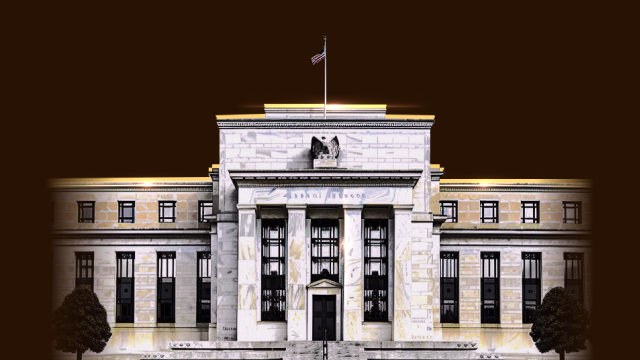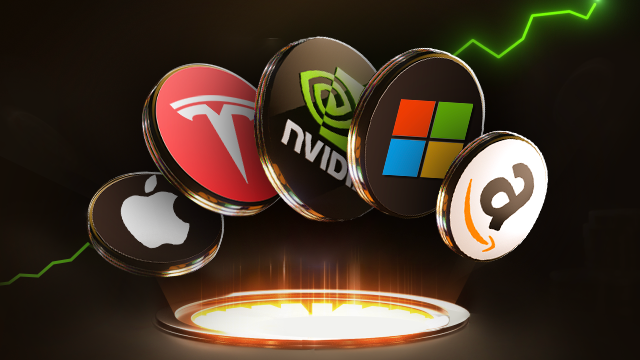VOO250509C520000
- 2.30
- -1.60-41.03%
Vanguard S&P 500 ETF Newsroom
FOMC Preview: When Will Powell Turn Dovish Amid Tariff Tensions?
Amazon's Tesla Robotaxi Rival Zoox Recalls 270 Driverless Vehicles Following Las Vegas Crash In April: Report
Cisco Unveils Quantum Chip, to Open Quantum Lab
Amazon's Zoox To Open New California Factory, Scale Robotaxi Fleet Ahead Of Public Launch In Las Vegas And San Francisco
Bill Gates Says Rich Countries 'Owe It To The World' To Get Themselves Down To Net Zero Emissions
Amazon Unveils Revolutionary Robot 'Vulcan' With Sense Of Touch To Handle 75% Of The Warehouse Items: 'People Will Always Be Part Of The Equation'
Tesla's China-made EV Sales Drop 6% Y/Y in April as Local Rival Surge
CoreWeave Expands Credit Facility to $1.5B to Boost Growth
Tesla Offers Free 1-Year Supervised FSD Trial To Select Cybertruck Owners Amid Elon Musk's Self Driving Push
U.S. Futures Rise, European Stocks Mostly Down
The largest stock buyback frenzy in history has arrived! In the midst of uncertainty, companies choose to "buy the dip" on themselves.
According to Deutsche Bank, S&P 500 Index constituent companies are expected to buy back $192 billion worth of Stocks in the coming months, the highest single-week record since 1995. Under the shadow of uncertainties such as trade tariffs, companies prefer to deploy large Cash reserves through buybacks.
OpenAI: Microsoft should take a smaller share of the revenue. Microsoft: Give me more technology.
OpenAI plans to significantly reduce the revenue sharing ratio with Microsoft from the current 20% to 10% by 2030. Microsoft hopes to continue using OpenAI's intellectual property after the reorganization, and both parties are negotiating aspects such as the Azure Cloud Computing Service agreement. Analysis points out that the current unresolved issue is whether the existing agreement covers products that OpenAI has not yet released or generated revenue from.
Tesla-Rival Lucid Announces 58% Increase In Deliveries, Plans To Introduce Mid-Size Platform In 2026
Countdown to the Federal Reserve's interest rate decision, Goldman Sachs expects there will be three more rate cuts this year.
Goldman Sachs predicts that the Federal Reserve may cut interest rates three times in the coming months, specifically in July, September, and October, for a total reduction of 75 basis points.
Amazon Acquires $84.4 Million Stake In AMD Amid AI Chip Expansion, Export Controls
Investors to Watch Powell's Language on Inflation Risks -- Market Talk
Despite the tariff disputes, should one still stick to U.S. stocks? Morgan Stanley provides five major investment recommendations.
① Should one choose Large Cap stocks or Small Cap stocks? Should one choose industrial stocks or Consumer stocks? Should one still remain committed to U.S. stocks? ② Morgan Stanley U.S. stock strategist Wilson offers five investment recommendations to investors to address Global trade risks.
Nvidia CEO Jensen Huang Says Losing Access To China's Potential $50 Billion AI Market Would Be A 'Tremendous Loss'
After Buffett "hands over the baton", Berkshire has made substantial bottom-fishing purchases, while retail investors gamble on the enduring faith in the "stock god".
On Monday, retail investors invested more than 24 million dollars in Berkshire Hathaway Class B Stocks.
Goldman Sachs outlook for the May Federal Reserve meeting: the threshold for interest rate cuts is higher than in 2019, and it is necessary to wait for employment and other hard data to weaken.
Analysts including Jan Hatzius from Goldman Sachs have stated that inflation and inflation expectations based on surveys are currently much higher, and decision-makers need to see more compelling evidence of an economic slowdown before taking action. The strongest argument for interest rate cuts would be if Federal Reserve officials believe that data indicates the unemployment rate may continue to rise, which means that other signs such as rising unemployment, weak wage growth, and companies becoming cautious or weak demand growth need to be observed.


